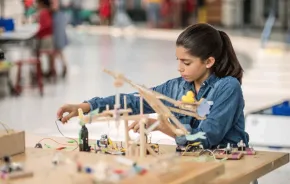
Photo:
Honey the pig is a resident at Pigs Peace Sanctuary in Stanwood, Wash.
Whether your family is interested in visiting local rescued animals, adopting a new pet, or becoming more engaged and involved in fighting for animal rights, there’s something for everyone at these seven Western Washington animal sanctuaries.
1. Pasado’s Safe Haven
Visit: Just an hour’s drive outside of Seattle, this 85-acre property lives up to its name as a “safe haven” for more than 200 dogs, cats and other domesticated animals. Book a visit to the sanctuary, generally offered on Saturdays, and a guide will lead your family on a tour, introduce you to resident animals and answer lots of questions. Book visits at the link above; tours cost $15 per person; kids ages 4 and younger are free.
Pasado’s offers several opportunities for the young animal lovers in your life to get involved.
Learn: Pasado’s has age-appropriate supplemental lesson plans and field trip opportunities for preschool–grade 5 students. If you’re looking for creative ways to get your child to write more, encourage them to send a letter to an animal pen pal through Pasado’s internationally recognized pen pal program — and they might just get an answer.
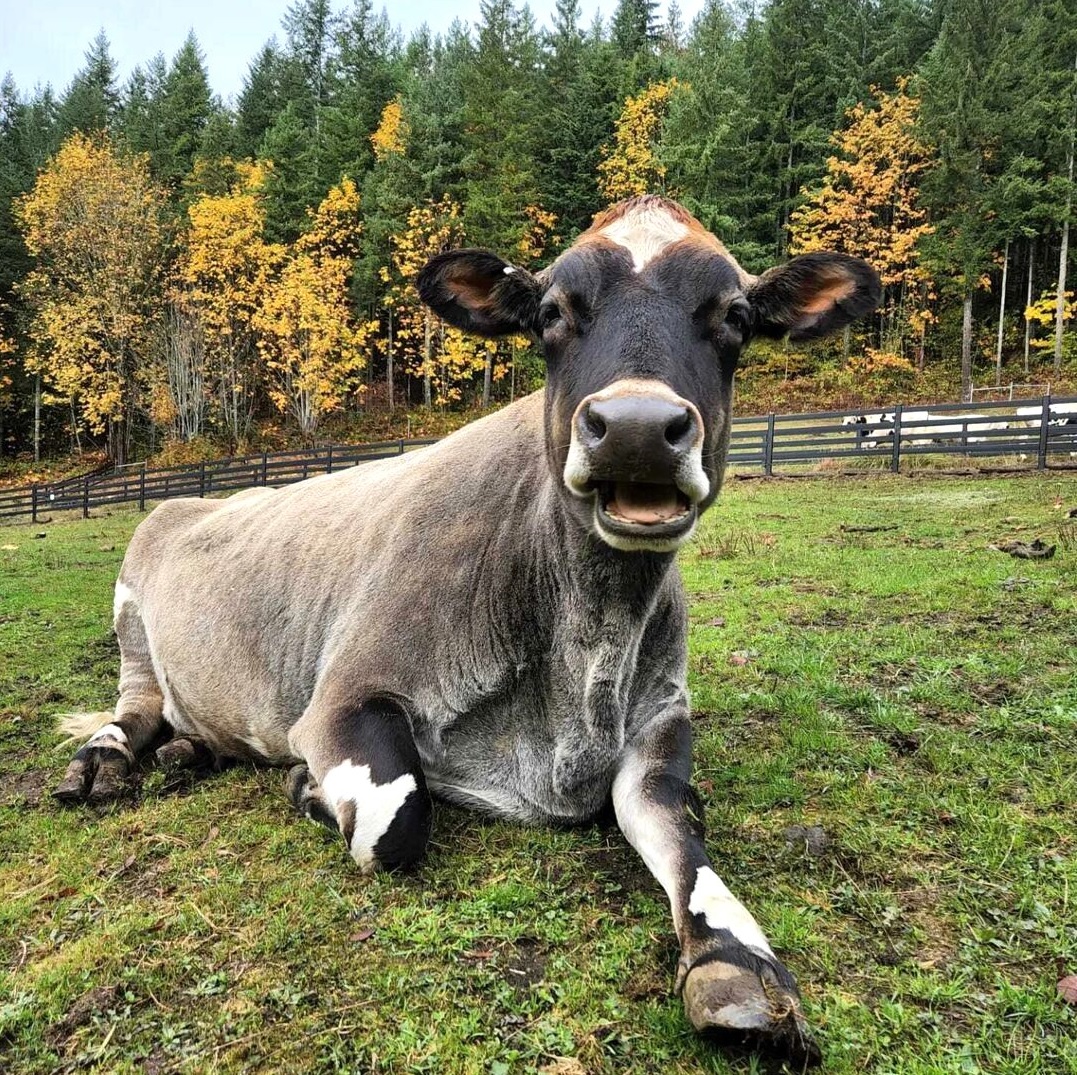
Adopt: If you’re considering adding a new family member to your home, you can adopt a pet through Pasado’s Safe Haven. Though not the simplest way to support animals in need, it’s definitely the most life-changing. Adopting a pet encourages empathy and responsibility in children while providing a safe and stable home to a rescued animal and opening up additional space to other animals in need of help. Not quite ready to commit? Consider fostering. Dogs, cats and even farm animals are available to foster or adopt.
Support: There are several ways to give to Pasado’s. You can donate online, sponsor an animal, stock items on its animal wish list and more. Or, you can volunteer on site. Volunteer opportunities are available for youths ages 12 and older. (Volunteers ages 12–15 must volunteer alongside a legal guardian.)
2. Sammamish Animal Sanctuary

Visit: A favorite of local families, Sammamish Animal Sanctuary (SAS) opened in its new Renton facility for visits in 2022. The sanctuary offers tours several days a week, and if your kids are ready to dive in, sign them up for the summer day camp. Summer camp sessions run three mornings per week this summer (June 26–Aug. 25), and kids ages 4–12 are welcome.
Support: There are several ways to support Sammamish Animal Sanctuary. You can donate directly to the facility or supply items on the sanctuary’s wish list. You can also purchase children’s books written by sanctuary founder Diane Gockel. Titles in her rescue series include “Al the Alpaca” and “Bella Saves the Farm.” All proceeds support the sanctuary.
Got more time on your hands than cash? You can also volunteer with SAS. Animal-loving teens ages 16 and older can get their hands dirty helping animals in need.
Adopt: Interested in adopting a pet? SAS offers bunny and guinea pig adoptions, in addition to cat and dog adoptions. (They also offer horse adoptions, but shhh! … I’m keeping that tidbit from my kids.)
3. Pigs Peace Sanctuary
Located in Stanwood and home to dozens of rescued pigs and other farm animals, Pigs Peace Sanctuary provides shelter to formerly factory-farmed, abused and neglected pigs.
Visit: Tours are available April–October by appointment only and are limited in frequency to protect and maintain a peaceful environment for the pigs and other animals on the property. To make an appointment to visit Pigs Peace, select a time and date offered on the website’s tour page. Your $55 donation per person directly supports the animals.
Support: In addition to visiting the farm, you can also support its work through regular donations, purchasing wish list items or volunteering as skilled labor for the sanctuary’s upcoming projects.
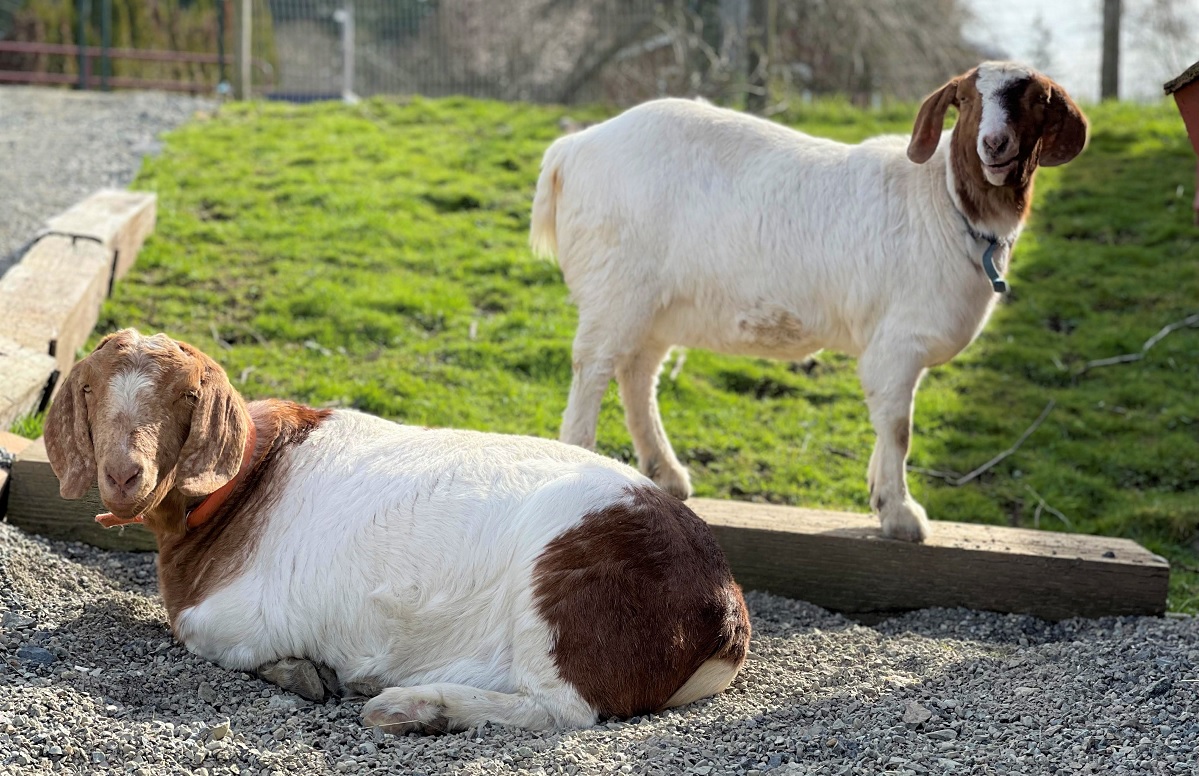
4. The Muddy Pug Farm & Sanctuary
Located in Maple Valley, the Muddy Pug Farm has been home to dozens of surrendered, formerly abused or neglected farm animals since its founding in 2018.
Visit: The Muddy Pug offers tours of its 5-acre facility during summer, starting in late June when school gets out. Check the website for details to plan your visit
Support: To support the farm, you can donate directly, purchase a gift card or supplies or volunteer.
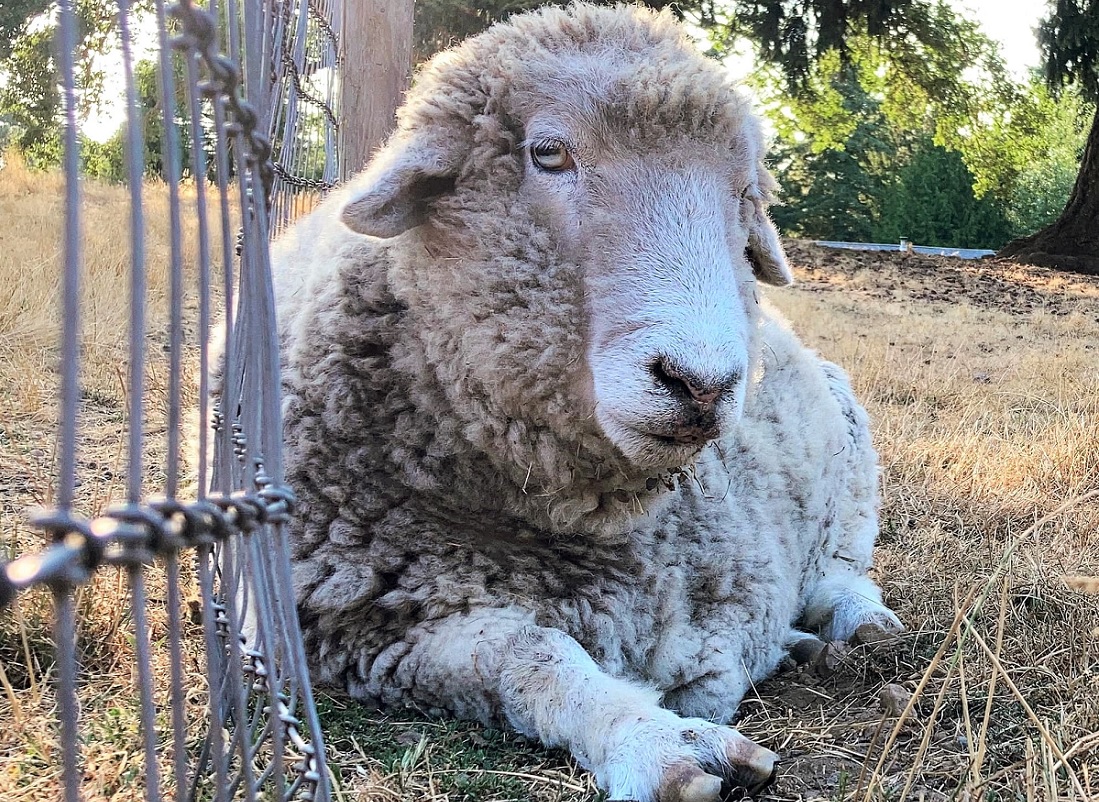
5. Black Dawg Farm and Sanctuary
For the horse lovers in your life, Black Dawg Farm and Sanctuary is home to horses, ponies and donkeys, plus cows, alpacas, pigs, goats, sheep and other critters. Black Dawg is located in Rainier, Washington, a small town in Thurston County. It’s run by an all-volunteer staff that provides refuge to more than 100 rescued animals.
Visit: Black Dawg Farm schedules tours of the sanctuary using the Airbnb Experiences platform. Tours cost $30 for adults and teens ages 13 and older; $10 for kids ages 2–12; tots younger than 2 visit for free.
Support: There are several ways to support the sanctuary. You can donate, sponsor an animal or volunteer on site. Adults and teens ages 14 and older of all skill levels are welcome to volunteer.
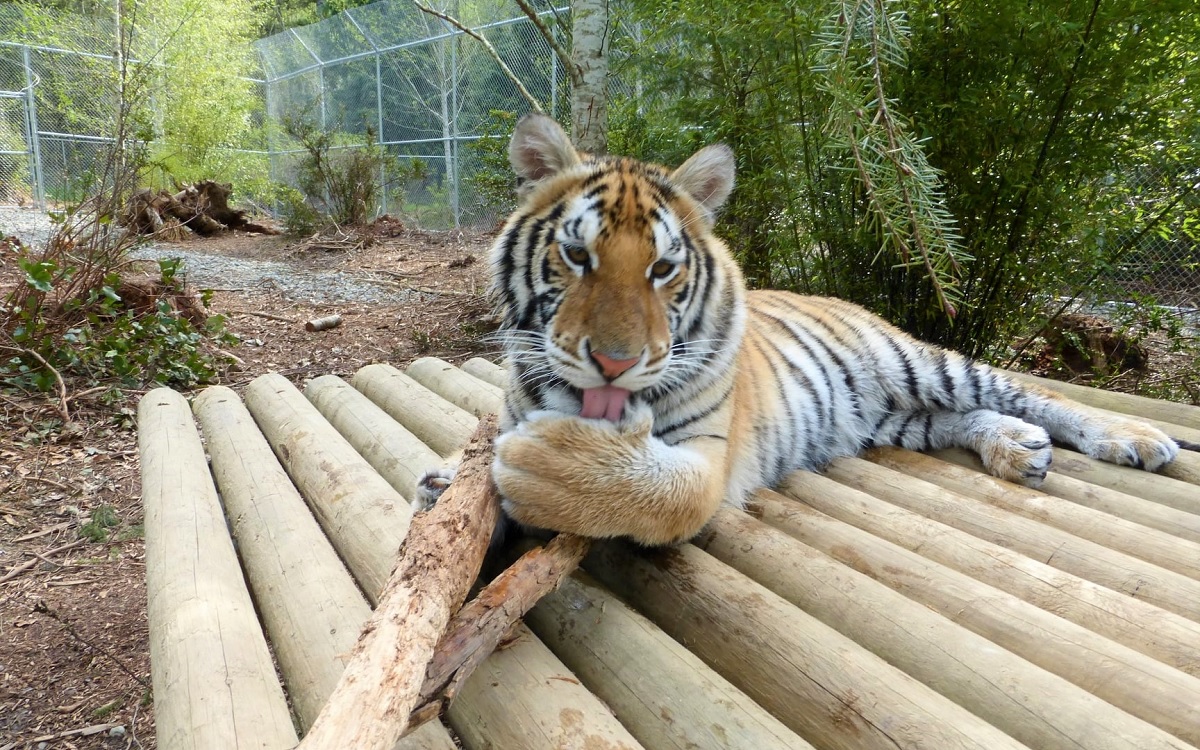
6. Wild Felid Advocacy Center of Washington
For all you “cool cats and kittens” (heh), take a walk on the wild side at this cat-specific sanctuary located in Shelton. The center boasts a fully volunteer-led refuge for more than 50 wild cats, including cougars, bobcats, servals, tigers, lynx, snow leopards, African leopards and other species. This center is home to the only true Gordon’s wildcats in the United States.
Visit: Educational guided tours are available at the sanctuary in exchange for a donation to the facility. WFAC requires young kids to stay with caregivers at all times and encourages them to hold an adult’s hand throughout the tour. Visits to the center are by reservation only and take place on Tuesdays, Thursdays and Saturdays. Visits are $30 for adults and children ages 12 and older, $25 for children ages 3–11, and free for children ages 2 and younger. For an extra-special visit, book a behind-the-scenes tour ($125 per person; visitors must be 12 and older).
Families, take note: As many animals on the property are healing from stressful and abusive situations, it’s important for kids visiting and touring the facilities to be mindful of animal well-being throughout the experience.
Support: To support the work of WFAC, you can donate to the center; all funds go directly to the animals. (Remember, no paid staff!) Funds will go to one of four initiatives: the animal care fund, veterinary fund, enrichment fund or special projects. You can also purchase items from the sanctuary’s wish lists.
7. Heartwood Haven
Located in Roy, Washington, Heartwood Haven animal sanctuary’s 2.5-acre property is home to dozens of farm animals. The organization has saved hundreds of animals since its founding in 2014.
Visit: Heartwood Haven offers small-group tours (for up to 10 people), private parties (for up to 30 people) and seasonal events. Book your Heartwood Haven visit on Airbnb Experiences. Tours start at $35 per person.
Adopt: Farm animals are listed and available for adoption on the Heartwood Haven website.
Support: You can also support the sanctuary by donating, sponsoring an animal or volunteering.
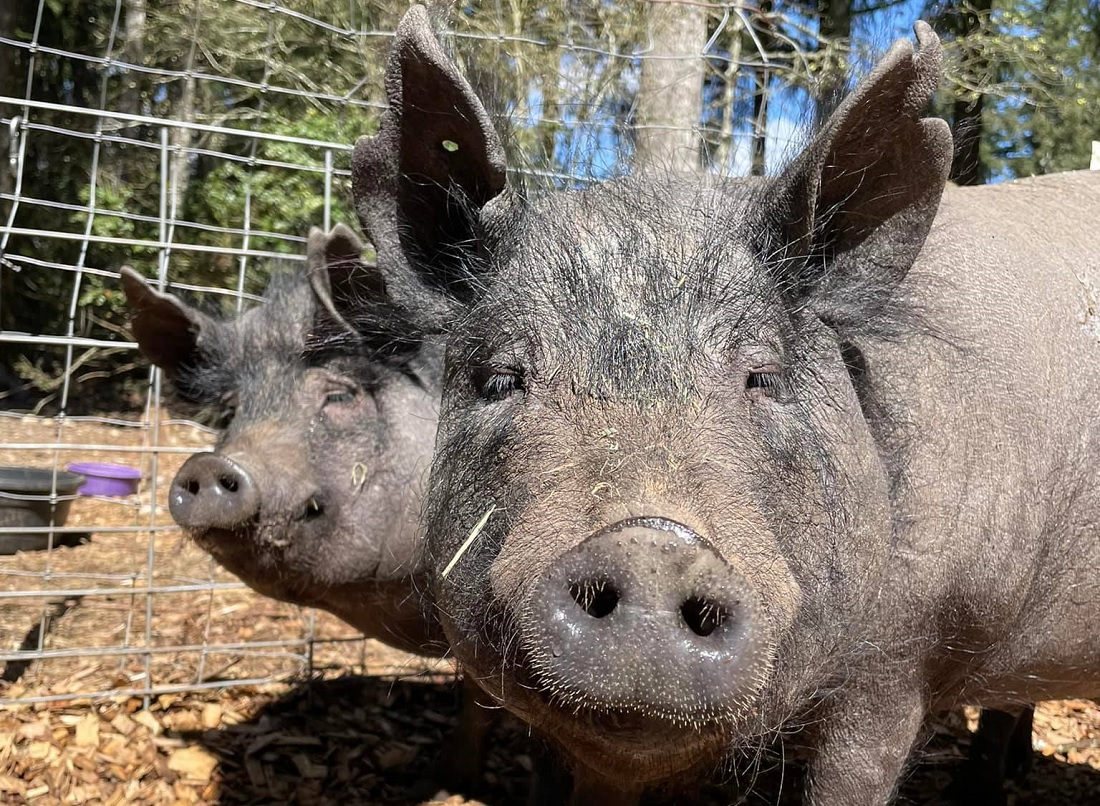
Bonus: The NOAH Center
Although The NOAH Center, located in Stanwood, Washington, isn’t technically a sanctuary, this place is doing great work and welcomes visitors for public tours. So, what are you waiting for? If you’re ready to adopt, it’s time to take your family over to The NOAH Center to find your next furry forever friend.
Adopt: Available animal listings and bookings to visit prior to adoption are available on The NOAH Center’s website.
Support: Donate directly to the center on the website. The NOAH Center has many different opportunities to volunteer and accepts volunteers ages 14 and older. (Anyone 14 or 15 years old must be accompanied by a parent or guardian while volunteering their time.)
Editor’s note: This article was first published in 2022 and has been updated for 2023









